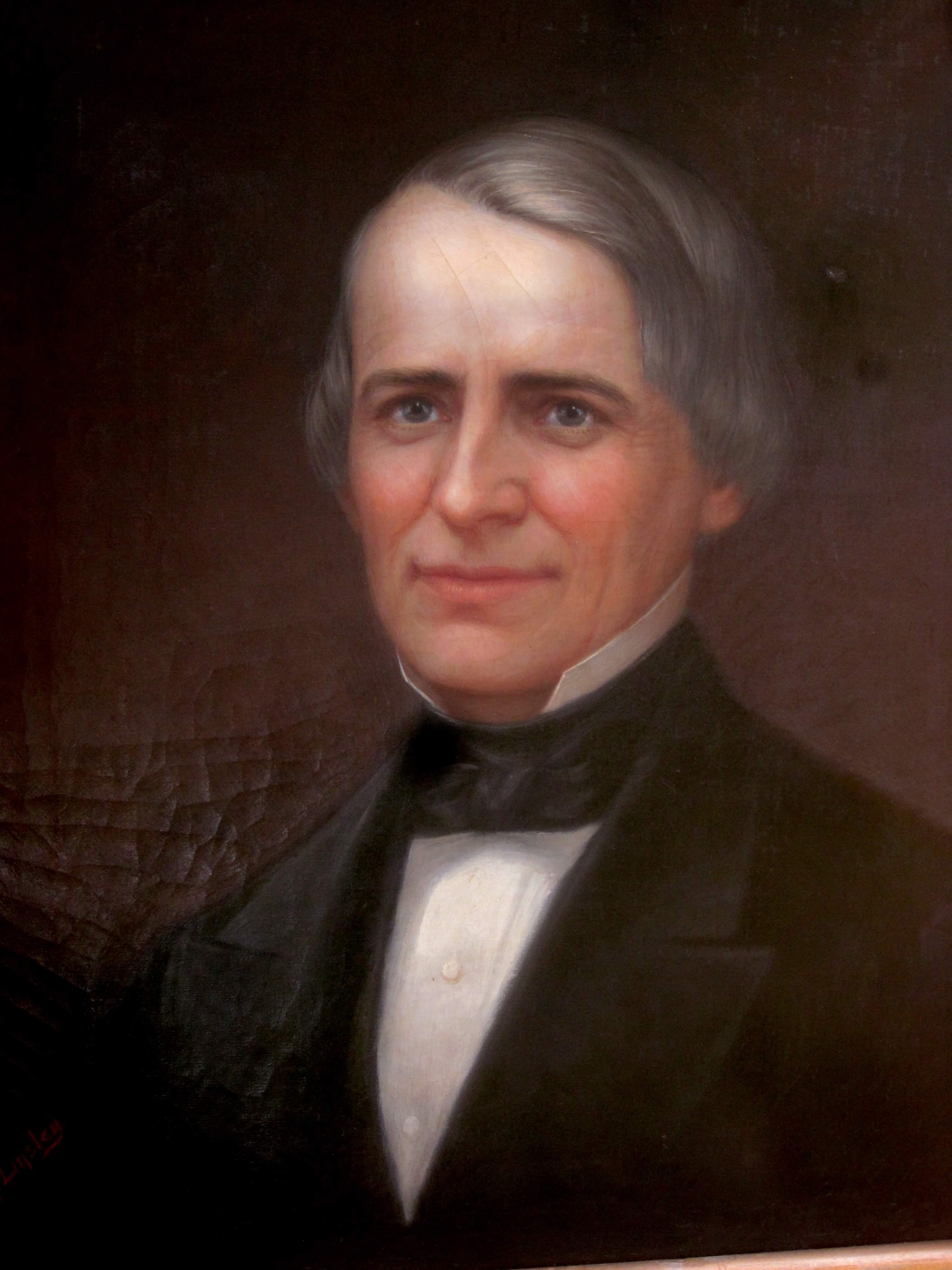1803-1889
Erastus Dean Culver was born in Champlain, Washington County, New York, on March 15, 1803. He graduated from the University of Vermont at Burlington in 1826, and the following year was awarded a Master of Arts by the same college. Culver studied law at the office of Judge William H. Parker in Whitehall, New York, and was admitted to the bar in 1831. He set up practice in Fort Ann, New York, where he served as town clerk and justice of the peace from 1831 to 1836. On March 4, 1830, he married Caroline Blinn, the sister of Judge Parker’s wife.
In 1836, the Culvers moved to Greenwich, Washington County, New York, and Erastus, an ardent abolitionist, became active in politics. He served in the New York State Assembly as the member for Washington County from 1838-1840. He was elected subsequently to the Twenty-ninth Congress where he served March 4, 1845 – March 3, 1847.
In 1850, the Culvers moved to Brooklyn, New York, where Erastus set up a successful practice and continued his abolitionist activism. In November, 1852, he appeared with John Jay II (the grandson of John Jay), before Judge Elijah Paine on behalf of the slaves in the landmark Lemmon Slave Case. The following year, Culver accepted a law clerk – Chester A. Arthur – and these men, together with others appointed by the Governor of New York, represented the State in the subsequent appeals of this hugely controversial case that ended eight years later with the New York Court of Appeals decision issued in March 1860. Had it not been for the outbreak of the Civil War, the case would have been appealed by the State of Virginia to the Supreme Court of the United States.
Erastus D. Culver served as a judge of Brooklyn City Court from 1854-1861 and presided in the Brooklyn Slave Case in 1857. As reported in the New York Times, the steamer Florida arrived in Brooklyn on December 3, 1857 and was boarded by several “special officers” seeking a fugitive slave. Jeems was located and restrained, and on the following day he was taken to a boarding house in Brooklyn. Theodore Tilton of The Independent sought a writ of habeas corpus, and Jeems was brought before Judge Culver at ten o’clock that evening at the judge’s home. After his examination, Judge Culver concluded that Jeems had been detained illegally and released him. Jeems is believed to have left immediately for Canada (Judge Culver was rumored to be involved in the Underground Railroad). The following morning, the “special officers” appeared in court before Judge Culver seeking the return of Jeems and stating his value at $2,000. The Police Commissioner testified that the “specials” were not Brooklyn police officers. The men involved, the steamship captain, the owner of the house where Jeems was held, and the two “special” police officers were taken into custody and charged with conspiracy to kidnap.
Culver was among the dignitaries on the podium who welcomed Abraham Lincoln to Cooper Union, where Mr. Lincoln delivered his famous speech on February 27, 1860. On July 12, 1862, President Lincoln appointed him Minister to Venezuela. Upon his return to the United States, Culver resumed the practice of law. He died in Greenwich on October 13, 1889.
Publications
Erastus Dean Culver. Speech of Mr. Culver, of New York, on the Texas and Oregon Questions, (1846).
Erastus Dean Culver. “Old Federalism” & “Modern Democracy”: Speech of Hon. E. D. Culver, of New York, on the Mexican War (1847).
Erastus Dean Culver. Forms of proceedings under the New-York prohibitory liquor law: also, a certified copy of the act, passed April 9th, 1855 (1855).
Sources
Harold Holzer. Lincoln at Cooper Union: The Speech That Made Abraham Lincoln President (2004).
Tom Calarco. The Search for the Underground Railroad in Upstate New York (2014).
The New York Times, December 4, 1857.
Frederic Lathrop Colver. Colver-Culver Genealogy (1910).

